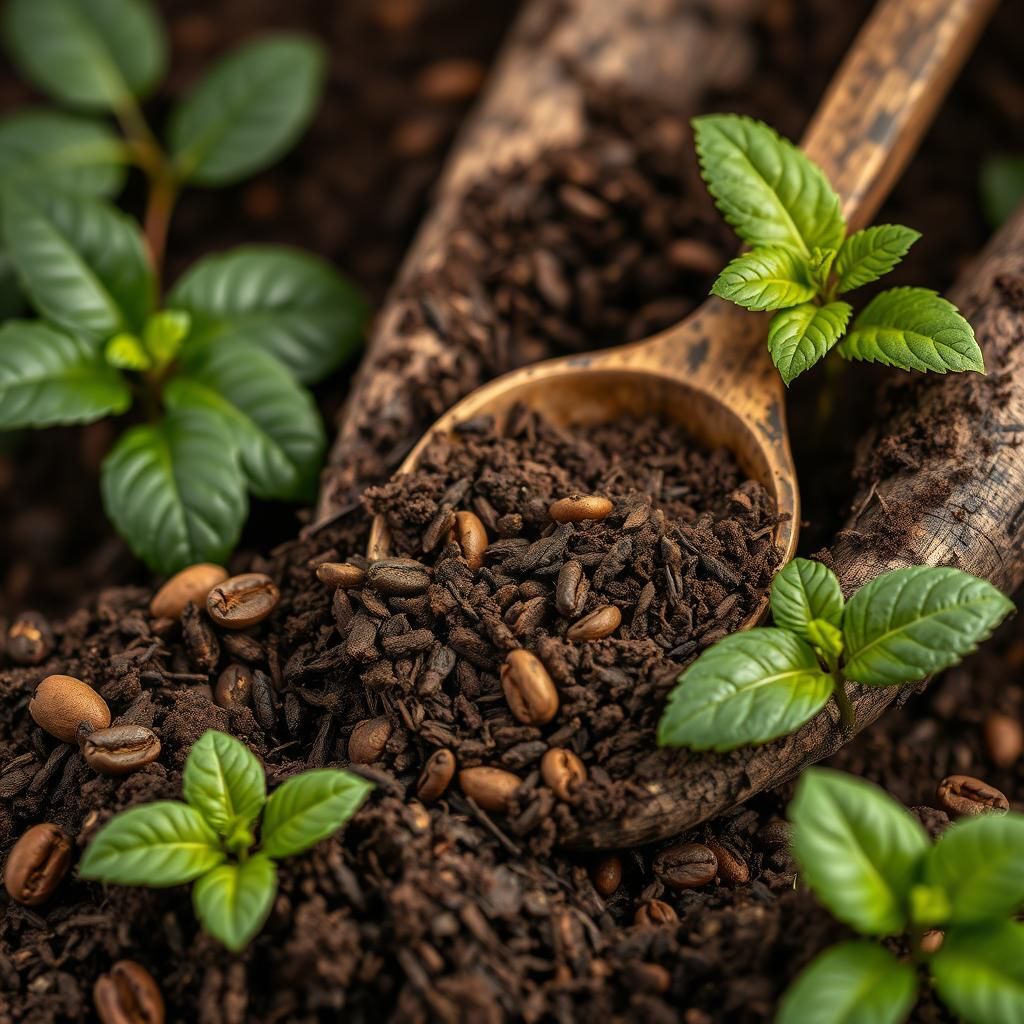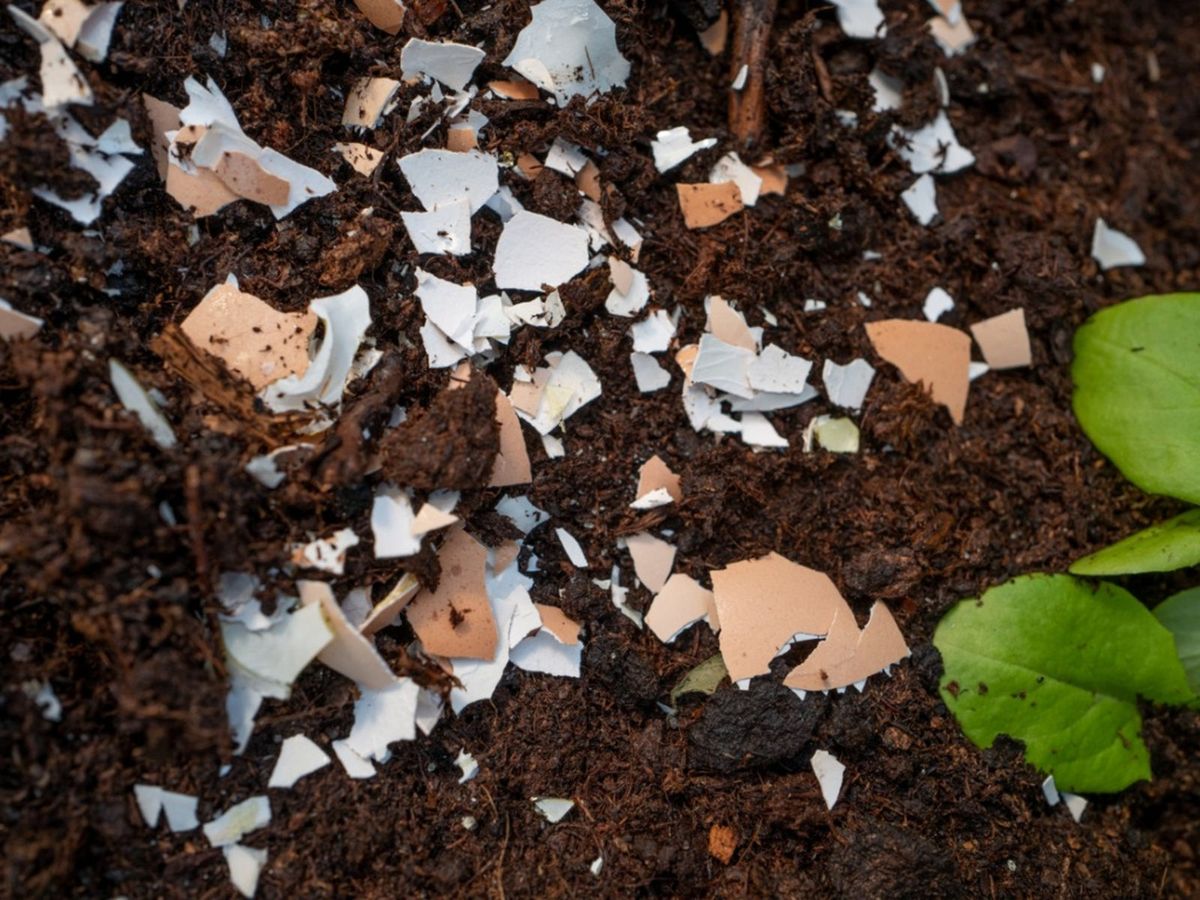Do Coffee Grounds Go in Compost? Discover the Benefits and Tips for Gardening Success

Coffee grounds are often overlooked as a valuable addition to compost piles, despite their numerous benefits for gardens. This article explores the advantages of using coffee grounds in compost, including their rich nitrogen content, which can enhance soil fertility and promote healthy plant growth. Additionally, we will provide practical tips on how to incorporate coffee grounds into your compost system effectively. By understanding the role of coffee grounds in composting, gardeners can harness this readily available resource to improve their garden's soil health, making it a sustainable and eco-friendly practice for gardening enthusiasts. Discover how coffee grounds can contribute to your gardening success!
Do Coffee Grounds Go in Compost?
Yes, coffee grounds can definitely be added to compost, and they are often considered a valuable addition due to their rich nutrient content. Coffee grounds provide essential nutrients like nitrogen, which helps to enhance microbial activity within the compost pile, aiding in the decomposition process. In addition to their nutritional benefits, coffee grounds are also known to improve the texture of compost, making it more aerated and conducive for plants. However, it's important to balance coffee grounds with other carbon-rich materials, such as dry leaves or cardboard, to ensure proper composting without causing any unpleasant odors or attracting pests.
Benefits of Adding Coffee Grounds to Compost
Adding coffee grounds to your compost offers multiple benefits, primarily due to their high concentration of nitrogen, which is a key component in promoting microbial growth. This microbial activity is crucial in breaking down organic materials effectively. Furthermore, coffee grounds are known to enhance the overall texture of the compost, contributing to aeration and moisture retention. They can also improve the pH balance, making the compost more efficient for plant growth.
How Much Coffee Grounds Should You Add to Compost?
While coffee grounds are beneficial, moderation is key. It is generally recommended to use coffee grounds as a part of your composting ratio, ideally comprising about 20% or less of the total compost volume. Overloading with coffee grounds can lead to a nitrogen imbalance, which might cause the compost to emit unpleasant odors. Balancing coffee grounds with browns such as dry leaves or straw will help maintain an optimal carbon-to-nitrogen ratio.
Types of Coffee and Their Impact on Compost
The type of coffee used can influence its suitability for composting. Organic coffee grounds are preferable as they are free from pesticides and chemicals, which can potentially harm the beneficial microorganisms in compost. Additionally, brewed coffee grounds are most commonly used as they are already wet, facilitating decomposition. However, instant coffee or flavored coffee grounds may contain additives that are not ideal for composting, so it is best to stick with simple brewed or ground organic coffee.
Avoiding Potential Issues with Coffee Grounds in Compost
While coffee grounds are largely beneficial, it's essential to be mindful of possible issues. Too many coffee grounds can lead to a sour compost smell due to the fermentation process caused by excess nitrogen. To avert this, it’s crucial to mix them thoroughly with other compost materials to maintain an airy composition. Additionally, avoid including any disposable coffee pods, as they often contain non-biodegradable plastics that can contaminate the compost.
Using Coffee Grounds in Other Gardening Practices
In addition to composting, coffee grounds can be used directly in your garden as a fertilizer. They can enrich the soil with nutrients while repelling certain pests. Sprinkling coffee grounds around plants can deter pests like slugs and snails. Moreover, they can be utilized as a natural soil amendment to enhance drainage and aeration, making them an excellent choice for improving the health of various garden plants.
| Aspect | Details |
|---|---|
| Benefits | Enhances microbial activity and nutrient content |
| Usage | Should compose about 20% or less of compost |
| Type | Preferably organic and brewed coffee grounds |
| Issues | Can lead to odor if too much is added |
| Alternate Uses | Acts as a pest repellent and soil amendment |
Why can't you compost coffee grounds?
:max_bytes(150000):strip_icc()/using-coffee-grounds-in-your-garden-2539864_FINAL-025580b008314747ad1a5d6411baf988.png)
Composting coffee grounds is often seen as a sustainable practice; however, there are several reasons why it may not be advisable. While coffee grounds do have some beneficial properties, they also present some challenges that can hinder the composting process. Here are some details explaining why composting coffee grounds may not be recommended.
Potential Nutrient Imbalance
Coffee grounds are known for having a high nitrogen content. While nitrogen is an essential nutrient for compost, an excessive amount can lead to an imbalance in the composting process. This can result in:
- Excessive heat: Too much nitrogen can cause the compost pile to heat up excessively, making it difficult for beneficial microbes to thrive.
- Ammonia production: An overabundance of nitrogen can lead to the release of ammonia gas, which can be harmful to plants and soil health.
- Insufficient carbon: The carbon-to-nitrogen ratio is crucial in composting, and coffee grounds can skew this balance if added in large volumes.
Acidity Levels
Coffee grounds can alter the acidity of the compost. This acidity can be detrimental for certain plants and microorganisms that prefer neutral to alkaline conditions. The effects include:
- Impact on soil pH: Too many coffee grounds may increase acidity, which could harm plants that are sensitive to high acid levels.
- Microbial activity: Some beneficial bacteria thrive in neutral pH levels; high acidity may hinder their growth and effectiveness.
- Plant compatibility: Some garden plants, like those in the brassica family, may struggle to adapt to the added acidity from coffee grounds.
Risk of Contaminants
Coffee grounds, especially those from commercially prepared coffee, may contain unwanted contaminants. These risks include:
- Pesticides: Conventionally grown coffee may be treated with pesticides and chemicals that can be harmful when introduced into compost.
- Pathogens: Grounds might carry pathogens if not properly processed, posing a risk to both the compost and the health of the garden.
- Inconsistent sourcing: The variability in coffee grounds from different sources can lead to inconsistent and unpredictable contamination levels.
Volume and Availability
Another challenge with composting coffee grounds is their availability and the volume required for effective composting. Consider these points:
See also:
- Excessive accumulation: It can be difficult to collect enough coffee grounds consistently to make a meaningful contribution to a compost pile.
- Limited diversity: Relying too much on coffee grounds can limit the diversity of materials in the compost, which is essential for microbial health.
- Organic matter ratios: Effective composting requires a balanced input of organic materials, and coffee grounds alone may not provide the necessary variety.
Compacting Issues
When added to compost, coffee grounds can compact and create barriers that inhibit air circulation. This can lead to:
- Anoxic conditions: Compacted materials reduce oxygen flow, which is critical for the aerobic decomposition process.
- Odor issues: Lack of oxygen can lead to anaerobic decomposition, resulting in foul odors that can attract pests.
- Slower decomposition: Compacted coffee grounds may break down more slowly, delaying the composting process’s overall efficiency.
How much coffee grounds can you put in your compost?
:max_bytes(150000):strip_icc()/using-coffee-grounds-in-your-garden-2539864_FINAL-025580b008314747ad1a5d6411baf988.png)
To enrich your compost with coffee grounds, it is essential to strike the right balance between nitrogen-rich materials and carbon-rich materials. Generally, you can add approximately 10 to 20% of coffee grounds by volume to your compost pile or bin. This percentage translates to around 1 to 2 cups of coffee grounds per square foot of compost surface area. Coffee grounds are a valuable source of nitrogen (which is a necessary nutrient for the composting process), but excess nitrogen can lead to imbalances, creating odors and slowing down decomposition.
Benefits of Adding Coffee Grounds to Compost
Adding coffee grounds to your compost provides numerous benefits:
- Nitrogen Source: Coffee grounds are rich in nitrogen, which is essential for the growth of microorganisms.
- Improves Structure: They help improve the structure of the compost, enhancing its aeration and drainage.
- Worm Attraction: Coffee grounds are known to attract worms, which further aid in decomposition.
Ideal Compost Ratios
Maintaining the right compost ratios is crucial. The ideal mix for a compost pile includes:
- Brown Materials: These are carbon-rich items such as dry leaves and cardboard, which should make up about 50-75% of your compost.
- Green Materials: These are nitrogen-rich items like grass clippings and food scraps, including coffee grounds, making up about 25-50% of your compost.
- Coffee Grounds: Ideally, coffee grounds should comprise no more than 10-20% of the total compost volume.
How to Prepare Coffee Grounds for Composting
Preparing coffee grounds for composting can enhance their effectiveness:
- Let Them Dry: Allow used coffee grounds to dry out to prevent them from clumping together.
- Avoid Paper Filters: If possible, separate coffee grounds from paper filters as they break down differently.
- Mix Thoroughly: Blend coffee grounds evenly into your compost pile to avoid creating compacted layers.
Potential Issues with Excess Coffee Grounds
While beneficial, too many coffee grounds can lead to issues:
- Acidity: An excess can make the compost too acidic, which can affect its quality.
- Odor Problems: A high concentration may lead to foul odors, indicating poor aeration.
- Slow Decomposition: Overuse can slow down the overall decomposition process, creating a less efficient compost.
Other Uses for Coffee Grounds
If you have excess coffee grounds, consider these alternative uses:
- Fertilizer: Sprinkling used coffee grounds directly into your garden can provide nutrients to your plants.
- Pest Deterrent: Coffee grounds can help deter certain pests, such as snails and slugs.
- Odor Neutralizer: They can be used in refrigerators or closets as a natural odor absorber.
Can I just sprinkle coffee grounds in my garden?
:max_bytes(150000):strip_icc()/using-coffee-grounds-in-your-garden-2539864_FINAL-025580b008314747ad1a5d6411baf988.png)
Yes, you can sprinkle coffee grounds in your garden, and this practice can offer several benefits for your plants and soil. However, it's essential to use them appropriately to maximize their benefits and avoid potential drawbacks. Coffee grounds are a rich source of nitrogen and can improve soil structure, support microbial life, and even deter pests when used correctly.
Benefits of Coffee Grounds for Soil
Coffee grounds provide numerous benefits when added to the soil. They can enhance soil health by introducing valuable nutrients and organic matter. The primary benefits include:
- Nitrogen Source: Coffee grounds contain around 2% nitrogen, which is essential for plant growth.
- Improved Drainage: Adding coffee grounds helps improve soil drainage due to its fine texture.
- Microbial Activity: The grounds encourage beneficial microbes that help decompose organic material, enriching the soil.
How to Use Coffee Grounds in Your Garden
To effectively use coffee grounds in your garden, there are several methods to consider. Here are a few recommended practices:
- Mix with Compost: Combine coffee grounds with other compost materials to balance carbon and nitrogen content.
- Top Dressing: Apply a thin layer of coffee grounds on the soil surface to enrich nutrients over time.
- Direct Application: Sprinkle grounds around acid-loving plants such as roses, blueberries, or tomatoes.
Considerations When Adding Coffee Grounds
It’s important to consider a few factors when using coffee grounds in your garden to avoid negative effects. Here are some key points:
See also:
- Acidity Levels: Coffee grounds are slightly acidic; overuse can alter soil pH adversely for some plants.
- Quantity Matters: Use coffee grounds in moderation to prevent soil compaction and excessive moisture retention.
- Potential for Caffeine: Some research suggests that high levels of caffeine may inhibit seed germination; moderate use is safer.
Plants That Benefit from Coffee Grounds
Certain plants thrive when coffee grounds are added to the soil. Understanding which plants benefit most can help improve your garden's productivity:
- Acid-Loving Plants: Plants such as azaleas, camellias, and rhododendrons thrive in slightly acidic soil.
- Vegetable Gardens: Tomatoes, carrots, and spinach appreciate the added nitrogen and nutrients.
- Flowers: Many flowering plants, including roses and marigolds, benefit from the nutrients provided by coffee grounds.
Potential Drawbacks of Coffee Grounds
While coffee grounds offer several advantages, there are potential drawbacks to be aware of. Here are some of the limitations:
- Compaction Risk: Too many coffee grounds can create a dense layer that hinders water penetration.
- Pest Attraction: If used improperly, coffee grounds may attract pests like slugs and snails.
- Quality of Grounds: Using flavored or processed grounds could introduce unwanted chemicals into your soil.
Are eggshells good for compost?

Eggshells can be a valuable addition to compost, enriching the nutrient content and enhancing the overall quality of the composted material. They are primarily made of calcium carbonate, which is beneficial for the soil and plants. When added to compost, eggshells decompose over time and break down into a fine powder, releasing essential nutrients that can help improve plant growth and soil structure.
Benefits of Using Eggshells in Compost
Adding eggshells to your compost provides several advantages:
- Calcium Supply: Eggshells are an excellent source of calcium, which helps in the development of strong cell walls in plants.
- Helps with Soil pH: They can help neutralize soil acidity, creating a better environment for plant roots.
- Pest Deterrent: Crushed eggshells can deter soft-bodied pests like slugs and snails when spread around plants.
How to Prepare Eggshells for Composting
To maximize the benefits of eggshells in your compost, proper preparation is essential:
- Rinse Thoroughly: Wash the eggshells to remove any residual egg white or yolk, which can attract pests.
- Crush or Grind: Breaking the shells into smaller pieces helps accelerate their decomposition.
- Drying Option: Consider drying the shells before adding them, as this can speed up the composting process.
Potential Drawbacks of Eggshells in Compost
While using eggshells is generally beneficial, there are a few potential drawbacks to be aware of:
- Slow Decomposition: Eggshells can take time to break down, which may delay nutrient release in the compost.
- Pest Attraction: Improperly cleaned or processed eggshells may attract pests due to leftover residues.
- Overuse Concerns: Excessive amounts of eggshells can lead to an imbalance in the compost's composition.
Best Practices for Composting Eggshells
To ensure that your compost remains healthy and effective, consider these best practices for incorporating eggshells:
- Moderation: Add eggshells in moderation to maintain a balanced ratio of green and brown materials.
- Mix Well: Ensure that eggshells are well mixed into the compost to promote even decomposition.
- Monitor Moisture: Keep the compost moist but not overly wet, as dry conditions can hinder the breakdown of eggshells.
Alternatives to Composting Eggshells
If composting is not suitable for your situation, consider these alternatives for eggshells:
- Direct Application: Crushed eggshells can be used directly in the garden as a soil amendment.
- Gardening Mulch: Spread crushed shells around plants to deter pests and add calcium as they decompose.
- Use in Seed Starters: Eggshells can be used as mini planters for starting seeds, providing nutrients as they break down.
Questions from Our Readers
Do coffee grounds go in compost?
Yes, coffee grounds are a great addition to compost. They are high in nitrogen, which helps to balance the carbon-rich materials in a compost pile. When added in moderation, coffee grounds can enhance the overall nutrient content of your compost.
What benefits do coffee grounds provide for compost?
Coffee grounds add essential nutrients to compost, including nitrogen, phosphorus, and potassium. They also improve soil structure and can enhance moisture retention, which is vital for healthy plant growth.
Should coffee grounds be used in large quantities in compost?
While coffee grounds are beneficial, they should be used in moderation. Using too many can lead to an unbalanced compost mix, making it too acidic or creating a dense texture that inhibits airflow. It's best to combine them with other compost materials.
Can you compost used coffee filters with the grounds?
Yes, used coffee filters are typically made of paper and can be composted along with coffee grounds. Just ensure that they are unbleached filters, as bleached ones may contain chemicals that are not ideal for composting.
See also:

If you want to read more articles like Do Coffee Grounds Go in Compost? Discover the Benefits and Tips for Gardening Success, we recommend you check out our Compost category.
Leave a Reply
Related Articles